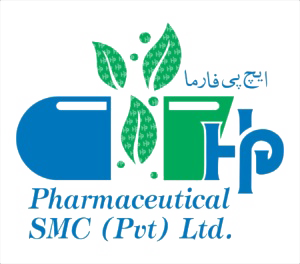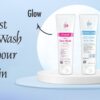

What is organic skin care products || how is it different?

In organic skin care products. The term “organic” in the cosmetics sector denotes the presence of all or a portion of materials derived from organic sources. For instance, an organic aloe farm may supply the aloe Vera in a moisturizer.
Organic components are those that have been grown by farmers without the use of synthetic fertilizers or pesticides. The precise description changes from country to country.
A minimum of 95% of the ingredients in American products bearing the U.S. Department of Agriculture (USDA) organic seal are organic. Although there is no proof to support it, these products might be more environmentally friendly.
In this post, we examine organic skin care in further detail, as well as its characteristics and advantages. We also examine the differences between organic skin care and “green” or “clean” skin care.
What is skin care that is organic?
Skin care solutions that include organically grown ingredients are referred to as organic. Globally recognized organic farming standards differ, but in general, organic farms don’t use products created in a lab.
This may include:
Chemical fertilizers
Chemical pesticides
Antibiotics
Hormones
parables
sulphates
GMOs
Instead, organic farms use natural ingredients to maintain the quality of their produce. Organic farming is thought to be less damaging to the environment.
What makes a skin care product organic?
For a skin care product to be organic, it must consist of organically farmed and processed plant-derived ingredients. Some examples of these include:
Plant extracts
Plant oils or butters
Essential oils
Resins
In the U.S., organic products must also:
Enable resource cycling
Maintain or improve air and soil quality
Conserve biodiversity
Minimize the use of synthetics
Depending on local regulations, the precise proportion of organic components in a product with “organic” on the label may change. The Food and Drug Administration (FDA) controls the use of the term “organic” in the United States, but individual states have their own standards for the percentage of organic components that products must include.
A product must have at least 95% organic ingredients to bear the USDA organic seal.
Is “natural,” “green,” or “clean” skin care the same as organic skin care?
No — these terms mean different things.
“Natural” can refer to a product’s ingredients, some or all of which were derived from plants or animals. This differs from being “organic.” Neither organic nor conventional farms can supply natural ingredients.
Additionally, the term “natural” does not necessarily imply that all of the ingredients are secure or sustainable. For instance, some producers get the moisturizing ingredient squalane from sharks. Shark hunting is facilitated by this.
Companies use the phrase “green” to indicate that their products are not bad for the environment. This is subjective once more. A business may use this to discuss its ingredients, packaging, operational procedures, or a mix of these. It does not ensure that the product is actually risk-free.
An even broader definition of “clean” exists.
None of these three terms are subject to FDA regulation. While businesses must adhere to certain requirements in the US before using the label “organic” on their goods, any business may use the other terms, regardless of the materials they employ.
What are the benefits of organic skin care?
Skincare that is organic need not be more or less efficient than nonorganic skin care. It does offer some significant advantages, though. Organic skin care items include:
Regulated. People can tell that a product includes what it says it does because the phrase “organic” is regulated in the United States.
greater benefit to biodiversity. Chemical pesticides, which kill wildlife and reduce biodiversity, are not used on organic farms.
less noxious. To qualify as “organic,” a product must either preserve or enhance the quality of the soil or air in which it is grown.
Biodegradable. Additionally, organic components frequently degrade fast and do not build up in the environment because they are biodegradable.
Are there downsides to organic skin care?
A few drawbacks exist with organic skin care. People should be aware that just because a product is organic doesn’t mean the manufacturer is always committed to environmental responsibility.
Some companies engage in “green washing,” which is an effort to convince consumers to believe that a firm is more ecologically friendly than it actually is, by highlighting Trusted Source its organic ingredients.
For example, a company might emphasize their organic ingredients, but they can still Trusted Source:
use some nonorganic ingredients
use some synthetic ingredients
have a high carbon footprint use non bio degradable packaging, such as plastic
Other things to consider
Being organic is simply one consideration while looking for environmentally friendly skin care. People can learn about a product’s general level of high quality, morality, and environmental friendliness from other characteristics.
Depending on their worries, a person could also want to research:
Purity. “Third party testing” refers to a business asking an impartial laboratory to examine the safety and purity of its products. This guarantees that goods contain what the manufacturer claims.
Effectiveness. To demonstrate the effectiveness of their products, some businesses conduct clinical studies. This may suggest that a given product is efficient.
Sourcing. Some organic components may nonetheless be produced or harvested in a way that harms the environment or the local community. For instance, some crops need a lot of space or water to develop. Some companies fund methods that reduce harmful consequences and strengthen communities.
Location. Fuel is used more extensively when moving goods internationally than when doing it locally. Brands that are active in a person’s area or nation may be something they want to think about.
animal protection. Although it is prohibited in many countries, some nevertheless demand that brands test their products on animals before they are permitted to sell them there. Additionally, some skin care products use substances derived from animals. Such products can be avoided by choosing labels that are vegan or cruelty-free.
The UK group Ethical Consumer offers free guidance on how to select environmentally friendly products.
Summary
A product is considered “organic” if it contains ingredients that were grown organically. To cultivate their produce, organic farmers don’t use synthetic fertilizers, pesticides, or other chemicals. The intention is to lessen the harm done to wildlife.
The precise definition of “organic,” as well as the requirements brands must follow to list skin care goods as such, vary by region. It differs from clean, natural, or eco-friendly skin care. These phrases are not governed by the FDA.
People can look for information online about what is important to them to make sure their skin care products are healthy for themselves, the environment, and the communities that grow the components.









Comments